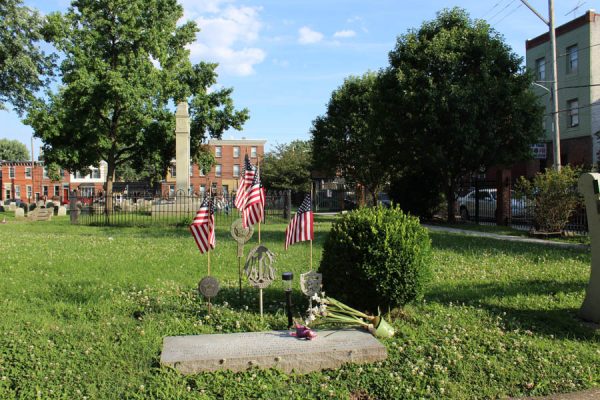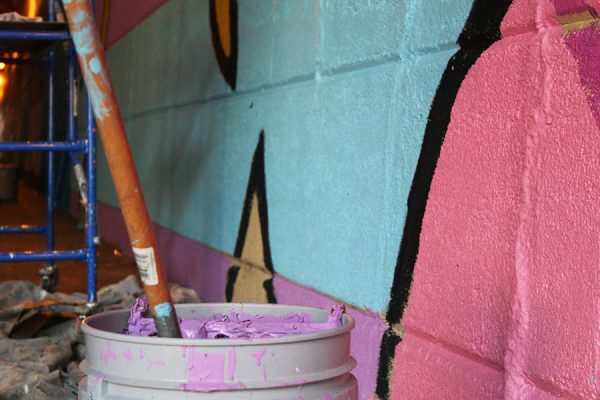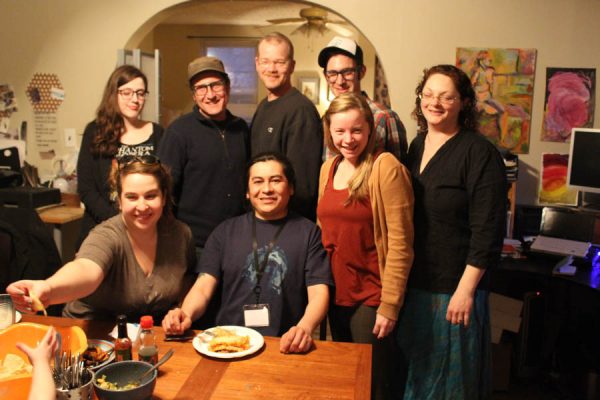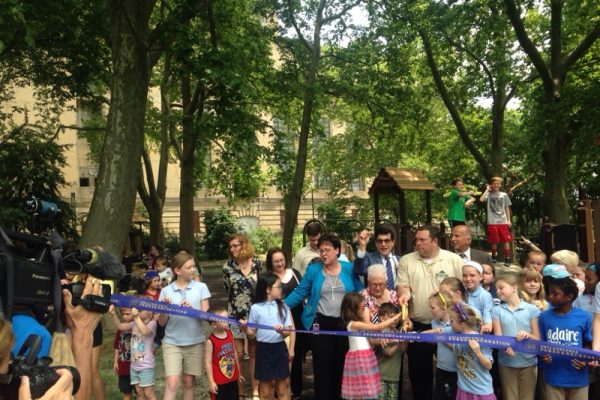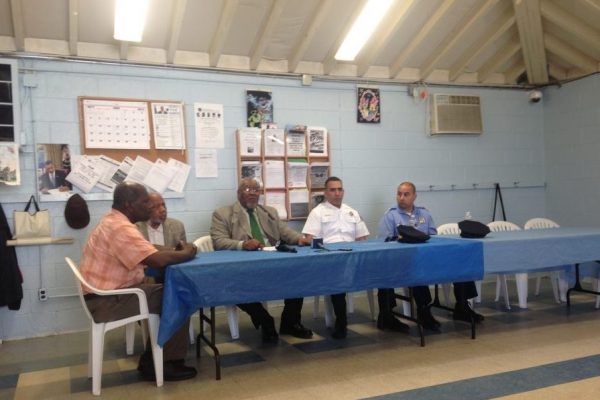A few weeks ago I heard a very disturbing story about a guy who sometimes used to wait at the Route 15 bus stop with me on Richmond Street. This man was one of many people I’ve gotten to know superficially while waiting for the Route 15.
The people we wait with at bus stops rarely become actual friends. They generally remain people to say hello to and kill time while waiting for SEPTA. I don’t remember this guy’s name, but I do recall my first chat with him several years ago when he told me his life story: how he lost his job and went on disability after falling off a ladder; how that in turn led to his becoming involved with drugs, and how that in turn led him to leaving his wife and then going to rehab, then falling off the wagon, then going back to rehab again, etc. etc.
When I heard the rehab story, I felt bad for him and wondered why he just didn’ say No when somebody first offered him heroin. “Life is challenging even without a drug problem, but adding drugs to the mix really puts you out to sea, and I mean way, way out to sea—without a lifeguard!” I thought.
I would see him often when he would go back and forth to the methadone clinic. For years he seemed fairly constant and disciplined doing this. Unlike some people on methadone, he never seemed to lose himself in public. By ‘losing himself’ I mean nodding out or slumping down in the seat. If anything, going to the clinic seemed to give him a purpose in life.
Of course, this is what is sad about substance abuse: when the time comes to rehabilitate, the substance abuser’s entire life becomes going through the process of rehabilitation. Rehab and staying clean becomes a full time career.
In many ways, he was Mr. Personality. Highly extraverted, talking to strangers for him had become a fine art.
Eventually I assumed he was a drug rehab success story, but then I started to see serious slippage. I witnessed him nodding on the bus and then I spotted him with an “I need money” sign and a tin can in the vicinity of the local shopping center. After that I’d spot him begging for money outside area convenience stores. His normally neatly attired self unraveled: something had come undone.
Then I didn’t see him for a while and he became just one of those bus stop people who suddenly disappear. You don’t even think about them but when you least expect it you might be waiting for the bus and your mind will wander to people who used to wait with you there, and you think, “Oh yeah, I wonder what happened to so-and-so.” That’s what I thought, although it was nothing really, because, as I said, we were not friends.
Then one day a neighbor, another fellow bus traveler (but not a member of the Church of Methadone) happened to mention to me that a youngish guy on her block was found dead in his bed, most likely the result of drug overdose. The way she described this person made me think of the guy in question, and so I asked her: “Was he a big talky semi-giant of a guy?” and she said Yes.
She filled me on some little neighborhood stories about him that fleshed out his final days.
And so, just like that, a commonplace face in the neighborhood was no more, and it’s a shame.
It’s a shame that getting and staying off drugs has to be so difficult. Why can’t it be as easy as getting on drugs? Getting hooked on dangerous substances can take just a few sessions, despite the “weekend warrior” stories you hear about how someone has learned to master drug use and still come out on top. Almost everybody who chases the dragon gets slain by the dragon.
Hearing this story got me thinking about methadone, as well as questions like: Do methadone clinics empower drug addiction?
Withdraw from methadone can be more difficult than withdraw from heroin or morphine. That’s why when methadone clinics put patients on a withdraw program they usually drop the intake by about 5 mg. per visit until the patient is down to nothing. Even after this, there’s no light at the end of the tunnel because most patients go on to experience withdraw symptoms and have difficulty sleeping. This situation can become so intolerable that most go back to methadone or street drugs.
Suboxone, the so called “rich man’s methadone,” is also no panacea because in order for it to work an addict has to keep taking it. Experts say that Suboxone
causes no permanent changes in a user’s brain that will make a relapse impossible. This is why an addict without a desire to change will never be cured of his/her
addiction. Heroin, for most addicts, is a lifetime sentence. This is true whether one stays on heroin or opts to transition to methadone or Suboxone. A lifetime of maintenance is always required. Maintaining sobriety, as I’ve stated, becomes your life’s career, replacing all vocational or professional goals.
When you think of all the vibrant lives snuffed out (involuntarily) in automobile accidents, cancer and other fatal intrusions, to intentionally throw one’s life away seems to me to be the greatest of tragedies–and sins.
The tragedy of heroin, besides its obscene glorification in the novels of William Burroughs, is its power to seduce people into trying it “just once.”
But an even bigger tragedy might be on its way.
Future government cuts could eliminate all rehab for people on welfare, increasing the number of vagabond addicts with no place to go.
There are so-called recovery houses, of course, but often these places ar merely money-making operations.
Some are as liberal as 1960s San Francisco communes, where house members come and go at whim and rarely if ever get tested or searched for drugs. These houses are in the business of “recovery” only to make money. They are like rip-off high priced grocery stores in poor, rundown neighborhoods. Addicts are evicted for non- payment of rent while injurious behavior related to their recovery is overlooked.
I wish I knew the answer to the city’s substance abuse problem, but I don’t. Rehab, methadone, Suboxone, detox, NA recovery meetings all have their place in the umbrella of self-help aids but without an addict’s desire to change they are all water over the dam.
I’ve been riding the Route 15 for some years now, and I can tell you that there have been other “methadone faces” that have come and gone.
The story of the neighbor who fell off the ladder is only one story among many that will probably never get told.

